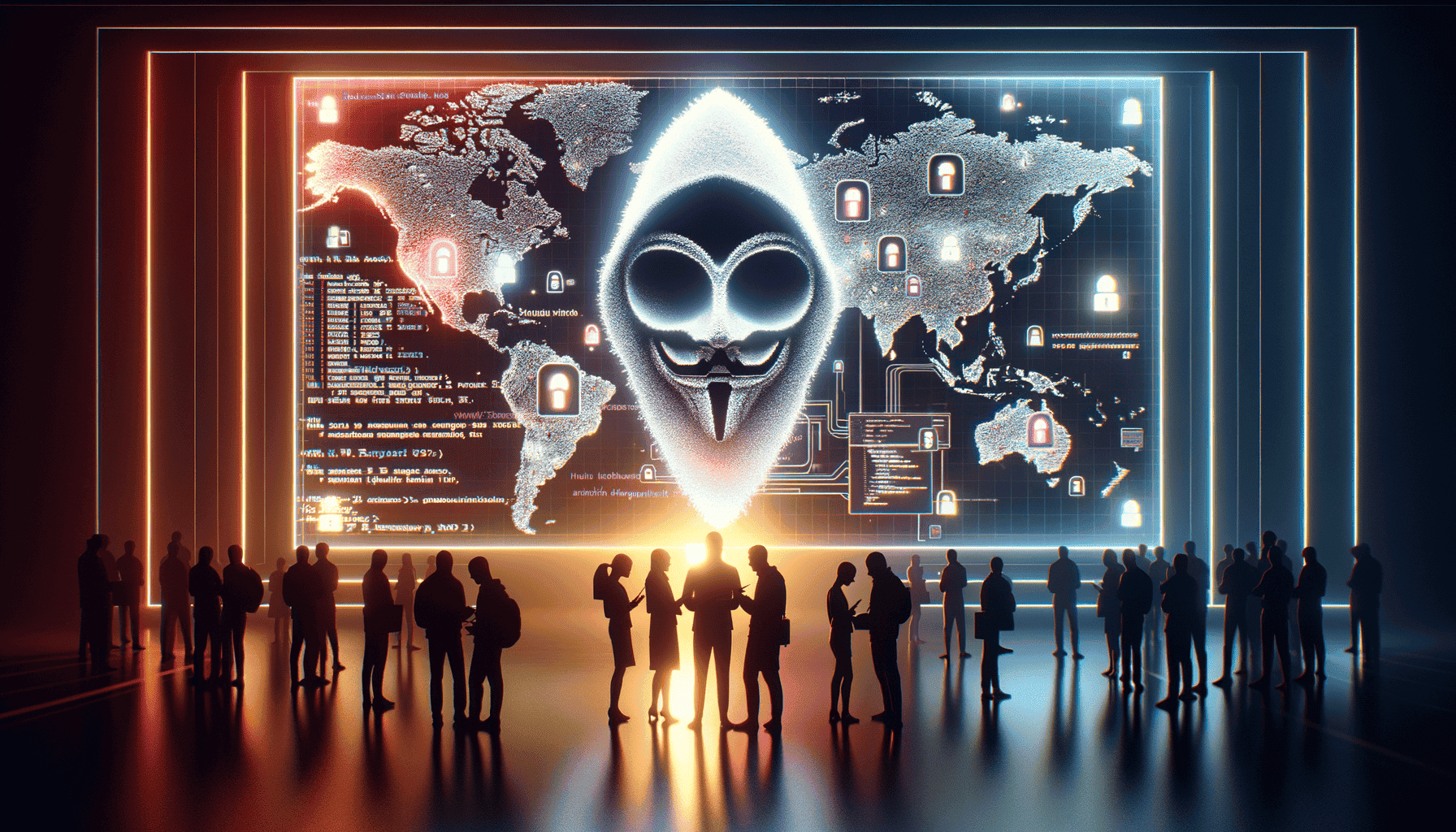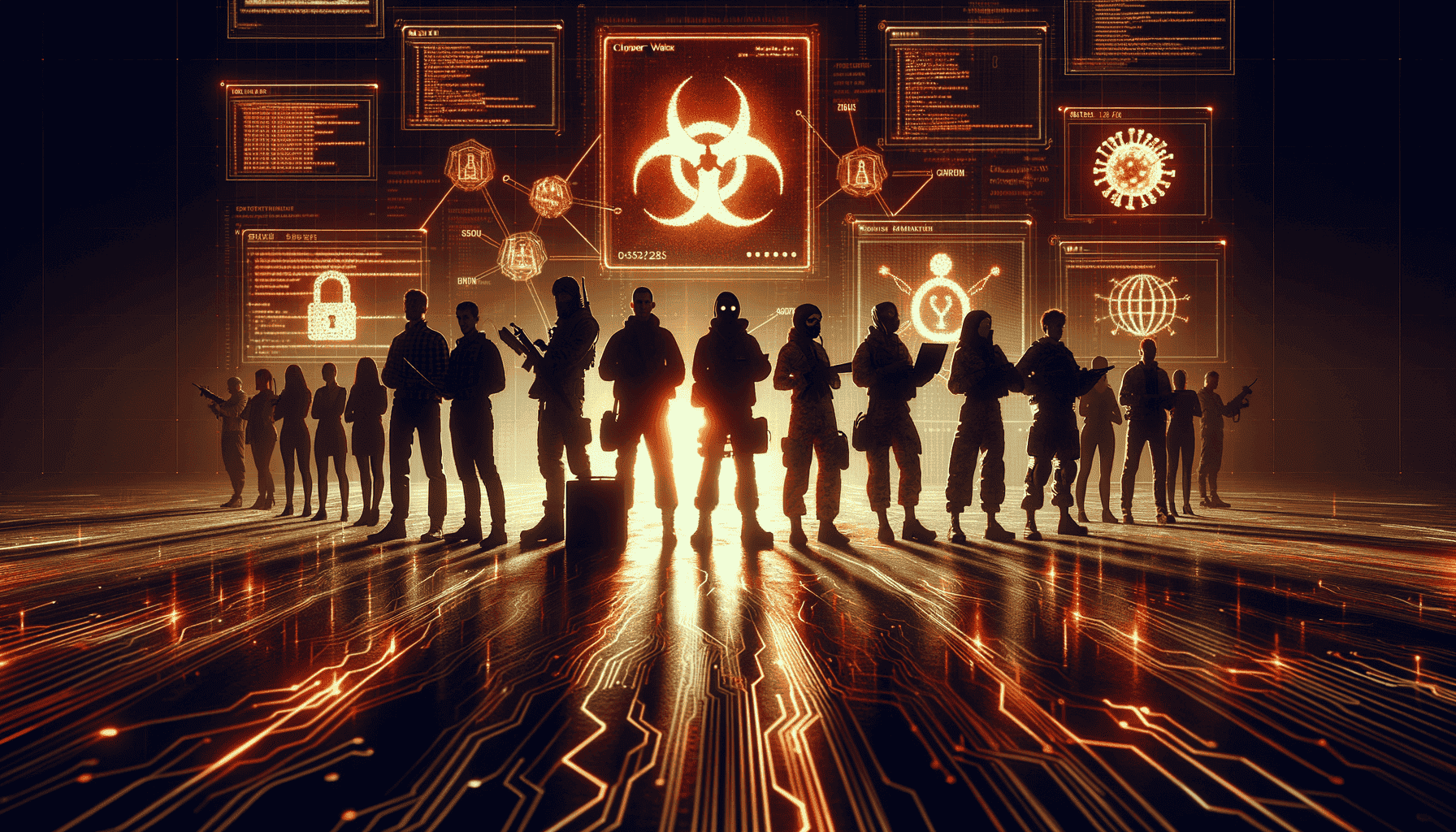The Silent Invasion
On a sunny morning in Kiev, Maria sat at her desk in the big office building. She worked with computers for a big company in Ukraine. Everything seemed normal that day in June 2017. The sun was shining, and people were typing away at their keyboards. But something bad was about to happen.
Maria noticed something strange on her screen. The computer was acting funny. "That's weird," she said to her friend Alex at the next desk. "My computer is so slow today."
Alex looked worried. "Mine too. And look at this strange message!"
More and more people in the office started having problems. Their computers stopped working. Screens turned black. Important files disappeared.
The First Signs
All across Ukraine, other people were having the same problems:
• Banks couldn't help their customers
• Stores couldn't take money
• Hospitals couldn't see patient records
• Trains stopped running on time
"This is not normal," said Viktor, the computer safety expert at Maria's company. His face looked serious as he walked quickly between desks. "Everyone, please turn off your computers right now!"
“We’ve never seen anything like this before. It’s spreading so fast!” – Viktor warned as he called other computer experts in Kiev.
The Hidden Enemy
What nobody knew yet was that bad people had made a special computer program. They hid it inside normal computer programs that many Ukrainian companies used. It was like hiding a mean dog inside a friendly puppy costume.
Maria watched as more offices in their building turned dark. People couldn't work. Phones started ringing everywhere with people asking for help.
"Call the police!" someone shouted. But this wasn't something the police could fix easily. This was a new kind of attack – one that used computers as weapons.
The Warning Signs
Viktor had been worried about something like this happening. He remembered how Ukraine's power went out before because of computer attacks. But this was bigger. Much bigger.
"It's like someone turned off the lights in the whole country," Maria said, looking at her dark computer screen. "But instead of lights, they're turning off our computers."
Outside, the sun still shined brightly over Kiev. But inside buildings all over Ukraine, a digital darkness was spreading. Nobody knew yet, but this was just the beginning of what would become one of the biggest computer attacks ever.
People started going home early that day. As Maria packed her bag, she looked at her quiet, dark computer one last time. Tomorrow would bring more surprises, and the world would soon learn about the attack that started in Ukraine but wouldn't stay there for long.
The Weapon Disguised
Deep in a quiet computer lab, Sarah, a smart computer detective, stared at her screen. She was trying to understand the mean program that hurt Maria’s computer in Ukraine. “This is very tricky,” she said, sipping her coffee. ☕
A Sneaky Trick
“Look at this!” Sarah called to her friend Tom. “The bad guys made this look like a program that asks for money to fix computers. But it’s really just breaking them!”
The mean program came hidden in something many people in Ukraine used – a program for doing taxes. It was like putting poison in everyone’s favorite candy.
“It’s the sneakiest computer attack I’ve ever seen. It doesn’t want money – it just wants to break things!” – Sarah explained to her team.
How It Worked
The bad program did three mean things:
• It locked up computers so no one could use them
• It spread to other computers like a cold
• It broke important files that computers need to work
The Hidden Clues
Tom pointed at his screen. “See these special marks in the program? They look like Russian writing!”
Sarah nodded. “And look how smart it is. It checks if computers are using Ukrainian language before it attacks. It’s like it has a special target!”
More computer doctors around the world started looking at the mean program. They found it was very well made – too well made for normal bad guys. It had to be made by people who really knew what they were doing.
The Tax Program Trap
“The clever part,” Sarah explained, drawing on a whiteboard, “is that they put it in M.E.Doc – a program almost everyone in Ukraine uses for taxes.”
It was like putting a tiny robot in something everyone needs to use. When people opened their tax program – BAM! The mean program jumped out and started breaking things.
The Real Purpose
As Sarah and other computer doctors studied the program more, they realized something scary. “This isn’t about money,” she told her boss. “This is about hurting Ukraine’s computers on purpose.”
The program was like a digital bomb , meant to break as many things as possible. It was warfare, but instead of soldiers and tanks, it used computer code and tricks.
That night, as Sarah walked home, she thought about all the people like Maria in Ukraine who couldn’t use their computers. She knew this attack was different – it was the start of something new and scary in the world of computers.
Global Domino Effect
The morning after NotPetya attacked Ukraine, something scary happened. The mean program didn’t stay in Ukraine – it started jumping to computers all around the world!
The Shipping Giant’s Bad Day
At the biggest boat company in the world, Maersk, workers came to work like any normal day. But when they tried to turn on their computers, nothing worked!
“Help! Our computers won’t work!” shouted Jim, a worker at Maersk. “We can’t tell the ships where to go!”
The company had to write everything down with paper and pencils. Imagine trying to keep track of thousands of big boats without computers! ✏️
More Companies Get Sick
The mean program spread like a super-fast cold. Here are some of the big companies it hurt:
• Shipping boats couldn’t move
• Medicine companies couldn’t make medicine
• Candy factories had to stop making treats
• Banks had to close their doors
The Chocolate Factory Problem
Even Cadbury, the yummy chocolate maker, got attacked! Their machines stopped making chocolate because the computers that told them what to do were broken.
“We can’t make any chocolate bars today,” said Mary, who worked at the factory. “The machines don’t know what to do without their computer friends!”
Hospitals Get Worried
Some hospitals in America found out their computers were sick too. Doctors couldn’t look at patient files or order medicine. They had to use paper charts like in the old days! ⚕️
The World Notices
People everywhere started to realize this wasn’t just Ukraine’s problem anymore. The mean program was hurting everyone!
“This is bigger than we thought,” said Lisa, a computer helper in New York. “It’s like a digital monster that keeps growing!”
Fighting Back
Computer doctors all over the world started working together. They needed to stop the mean program before it could break more things.
“We need to work together to fight this,” said computer helpers from different countries. “It’s too big for just one team to fix!”
As the sun set that day, many people couldn’t use their computers. But the world’s best computer doctors were getting ready for a big fight against the meanest computer program they had ever seen.
The Digital Firefighters
As computers around the world got sick, brave computer helpers came to save the day! Like firefighters who put out fires, these digital heroes worked day and night to stop NotPetya.
The Computer Hospital
In a big room with lots of screens, Sarah and her team looked at sick computers. They were like computer doctors trying to find out what made the computers so ill.
“This is not just a normal computer bug,” Sarah said, pointing to her screen. “Someone made this to be extra mean!”
Detective Work
Computer detectives found something strange. The mean program wasn’t asking for money like normal bad programs. It was just breaking things on purpose!
“Look at this!” Tom, a computer helper, showed his friends. “It’s pretending to be nice, but it’s actually being very sneaky!”
Team Power
Here’s what the computer helpers did to fight back:
• Looked for clues in broken computers
• Warned other companies about the danger
• Made special tools to protect computers
• Helped fix broken machines
• Taught people how to stay safe
The Big Discovery
After lots of hard work, the computer helpers found something big!
“This wasn’t made by normal bad guys,” said Maria, a smart computer detective. “This was made by a whole country to hurt other countries!”
Working Together
Computer helpers from America, Europe, and Asia all worked as a team. They shared what they learned to help everyone stay safe.
“When we work together, we’re stronger!” said Jack, a computer helper from London. “We can protect more people this way!”
Making Things Better
The digital firefighters worked super hard to make special shields. These shields would help protect computers from mean programs in the future. ️
“We’re like computer superheroes!” smiled Rosa, while making new safety rules. “We protect people from digital bad guys!”
The Digital Detective Story
The computer helpers found something very important! They discovered who made the mean NotPetya program. It was like solving a big mystery!
Following the Clues
Detective Lisa and her team found special marks in the program. These marks were like fingerprints that showed who made it. ️♀️
“Look at this code!” Lisa said excitedly. “It’s the same as other mean programs Russia made before!”
The Truth Comes Out
Many countries got together to talk about what happened. They were very upset that Russia tried to hurt Ukraine’s computers.
“This is not okay,” said John, a helper from America. “Countries shouldn’t use computers to hurt other countries.”
Why Did It Happen?
Here are the reasons experts think Russia made NotPetya:
• To make Ukraine’s computers stop working
• To show they could hurt other countries with computers
• To cause trouble without using real weapons
• To make people feel scared and worried
• To test their digital weapons
Countries Take Action
When countries found out Russia did this, they got very serious.
“We need to stop this from happening again,” said Maria, a helper from Europe. “We need new rules about using computers to attack others.”
Making New Rules
Countries started working together to make new rules about computer attacks. They wanted to keep everyone safe!
“We need to protect our digital world,” said Tom, a safety expert. “Just like we protect our real world!”
Learning From What Happened
The NotPetya attack taught everyone important lessons. Companies and countries now work harder to keep their computers safe. ️
“We’re getting better at catching bad programs,” smiled Sarah, a computer protector. “And we’re teaching others how to stay safe too!”
A Safer Digital World
After finding out Russia made NotPetya, the world changed how it protects computers. Let’s see what happened next!
Making Things Better
Companies and countries worked hard to fix the damage. They made their computers stronger and safer. It was like building better locks for digital doors!
Ukraine Grows Stronger
Ukraine didn’t give up when NotPetya hurt their computers. They became digital superheroes!
“We are stronger now,” said Ana, a helper from Ukraine. “We know how to stop mean programs better!”
New Safety Rules
Here are the big changes that happened after NotPetya:
• Companies made better computer safety plans
• Countries shared information about bad programs
• People learned to be more careful with their computers
• New tools were made to catch mean programs
• More computer safety teachers helped others learn
Working Together
The best part? Everyone learned to work together! Countries shared their computer safety tricks.
The Future Looks Bright
Now, companies and countries are ready for mean programs like NotPetya. They have special teams watching for trouble!
“We’re like digital firefighters,” smiled Mike, a computer protector. “We stop problems before they get big!”
Looking Forward
The NotPetya story teaches us something important: Bad things can make us stronger. Now we know how to protect our digital world better!
“Every day, we get better at keeping computers safe,” said Lisa. “And we won’t stop trying!”






